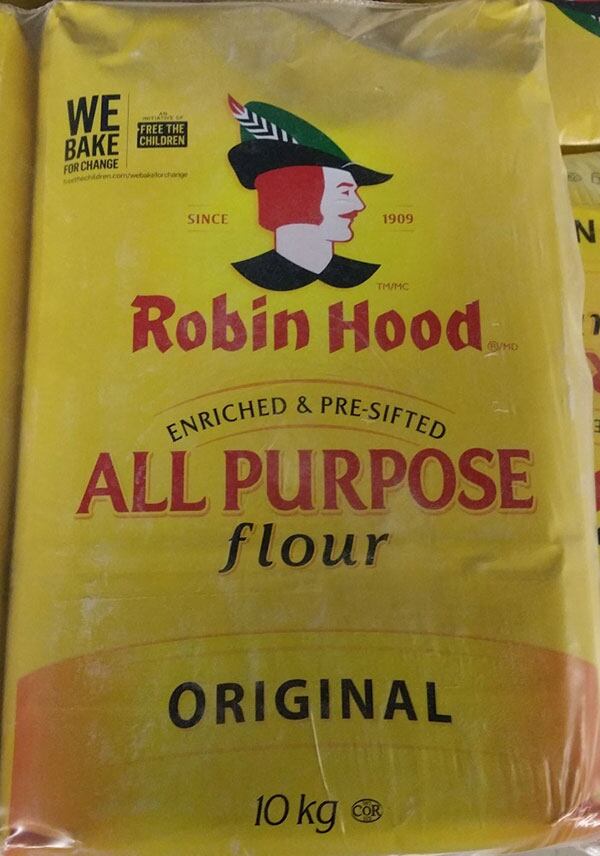The Public Health Agency of Canada (PHAC) said four provinces have reported cases: British Columbia (12), Saskatchewan (4), Alberta (4) and Newfoundland and Labrador (5).
However, Smucker Foods of Canada Corp said there has only been one illness from Robin Hood flour and the other E. coli illnesses have not been linked to the product.
The firm told FoodQualityNews it has contacted PHAC regarding the outbreak update which it called ‘misleading and inconsistent’ with the information it had been given by the Canadian Food Inspection Agency (CFIA).
It recalled Robin Hood brand All Purpose Flour, Original 10kg bags with lot codes containing BB/MA 2018 AL 17 and 6 291 548.
Flour was produced in October 2016 at Ardent Mills’ Saskatoon, Saskatchewan facility.
Ardent Mills operates as an independent joint venture of ConAgra Foods, Cargill and CHS.
The J.M. Smucker Company said it has not tested product for E. coli O121.
“Consumer safety and product quality are of paramount importance to our company so of course our quality assurance teams are conducting our own investigation into the matter.”
Ardent Mills said it was committed to safety and providing nutritious grain-based products to customers and consumers and was in the process of investigating.
Positive samples
Collected samples of Robin Hood flour have tested positive for E. coli O121.
Several individuals who became ill had a link with Robin Hood flour.

The Canadian Food Inspection Agency (CFIA) said the recalled product was distributed at a retail level in British Columbia, Alberta, Saskatchewan and Manitoba.
The agency said the investigation is ongoing and additional products linked to the outbreak may be identified.
Restaurants and retailers are advised not to sell or serve the recalled product or any items that may have been prepared or produced using it.
STEC O121 and STEC O26 were responsible for 63 illnesses in 24 states in the US last year.
Traceback evidence indicated that flour produced at a General Mills facility in Kansas City, Missouri was the likely source.
Epidemiological investigation
Illness onset dates in the Canadian outbreak range from November 2016 to late February and six people have been hospitalized.
The majority (54%) of those who became ill are male with an average age of 24 years.
PHAC said it is not safe to taste or eat raw dough or batter, regardless of the type of flour used as raw flour can be contaminated with harmful bacteria.
The agency added any containers used to store the recalled product should be thoroughly washed before being used again.
E. coli symptoms generally appear within one to ten days after contact with the bacteria.
Norovirus outbreak update
Meanwhile, an outbreak of gastrointestinal illness in the same country has expanded with 321 clinical cases now reported in three provinces.
The source of norovirus illness is oysters from British Columbia but the cause of contamination has not been identified.
Illnesses linked to raw and undercooked oysters continue to be reported, indicating contaminated products remain on the market (including restaurants, seafood markets and grocery stores).
Seven shellfish farms where oysters are harvested in British Columbia have been closed for harvest.
Illnesses can be avoided if oysters are cooked to an internal temperature of 90° Celsius/194° Fahrenheit for a minimum of 90 seconds.
